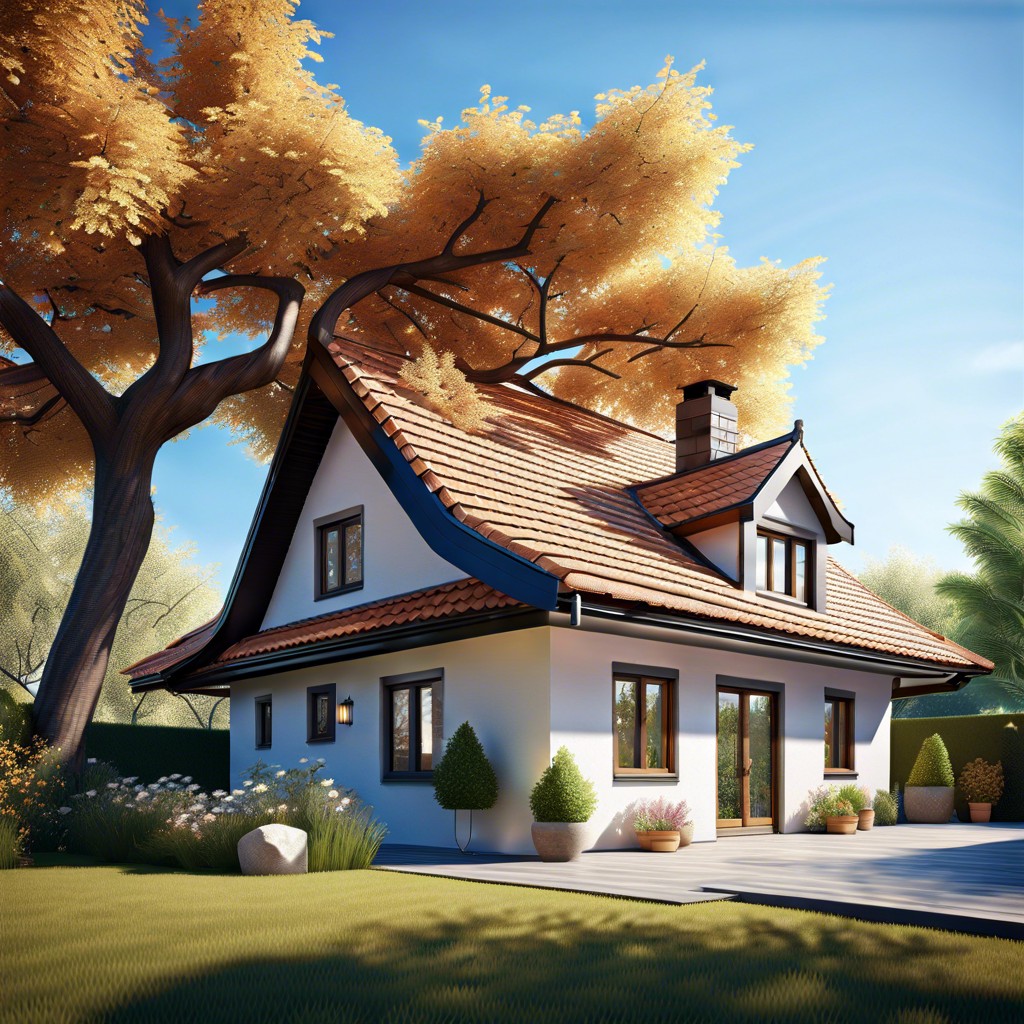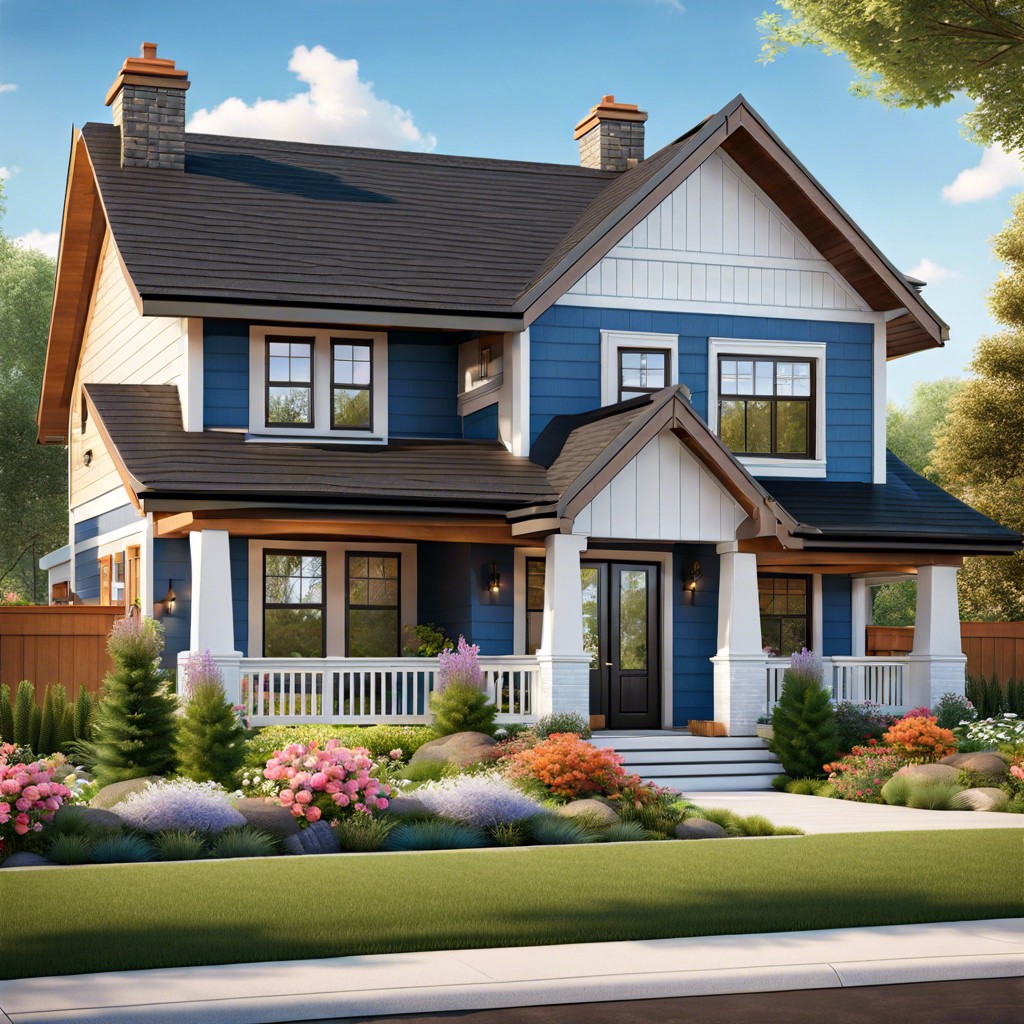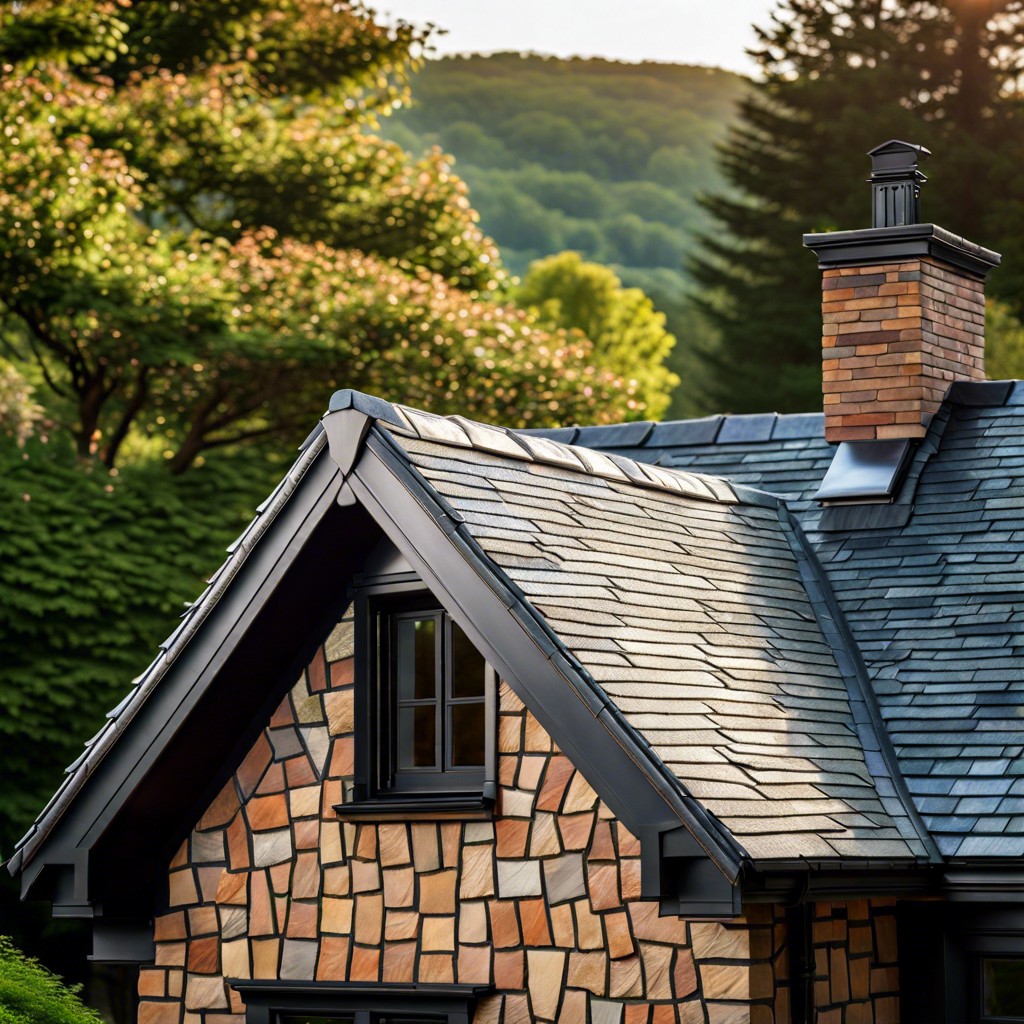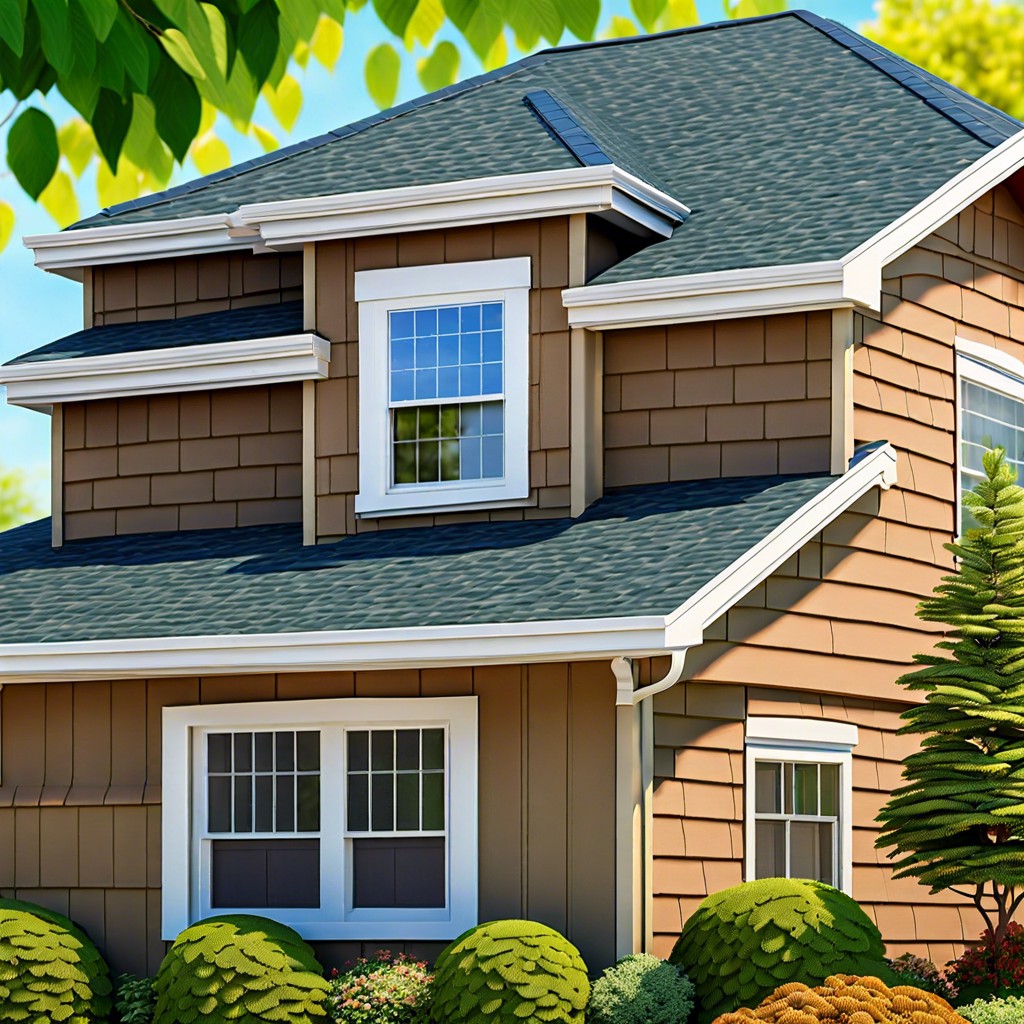Last updated on
Learn how the cost of installing a metal roof on a 2,000 sq ft house is influenced by factors such as material choices, labor, and regional pricing variations.
Key takeaways:
- Metal roof on a 2,000 sq ft house costs ,000 to ,000.
- Costs vary based on material choice and regional labor rates.
- Metal roofing options include corrugated steel, metal shingles, and standing seam.
- Factors that affect cost include roof size, complexity of installation, and geographic location.
- Metal roofs offer longevity, durability, energy efficiency, and low maintenance.
How Much Does It Cost to Put a Metal Roof On a 2,000-Square-Foot House?
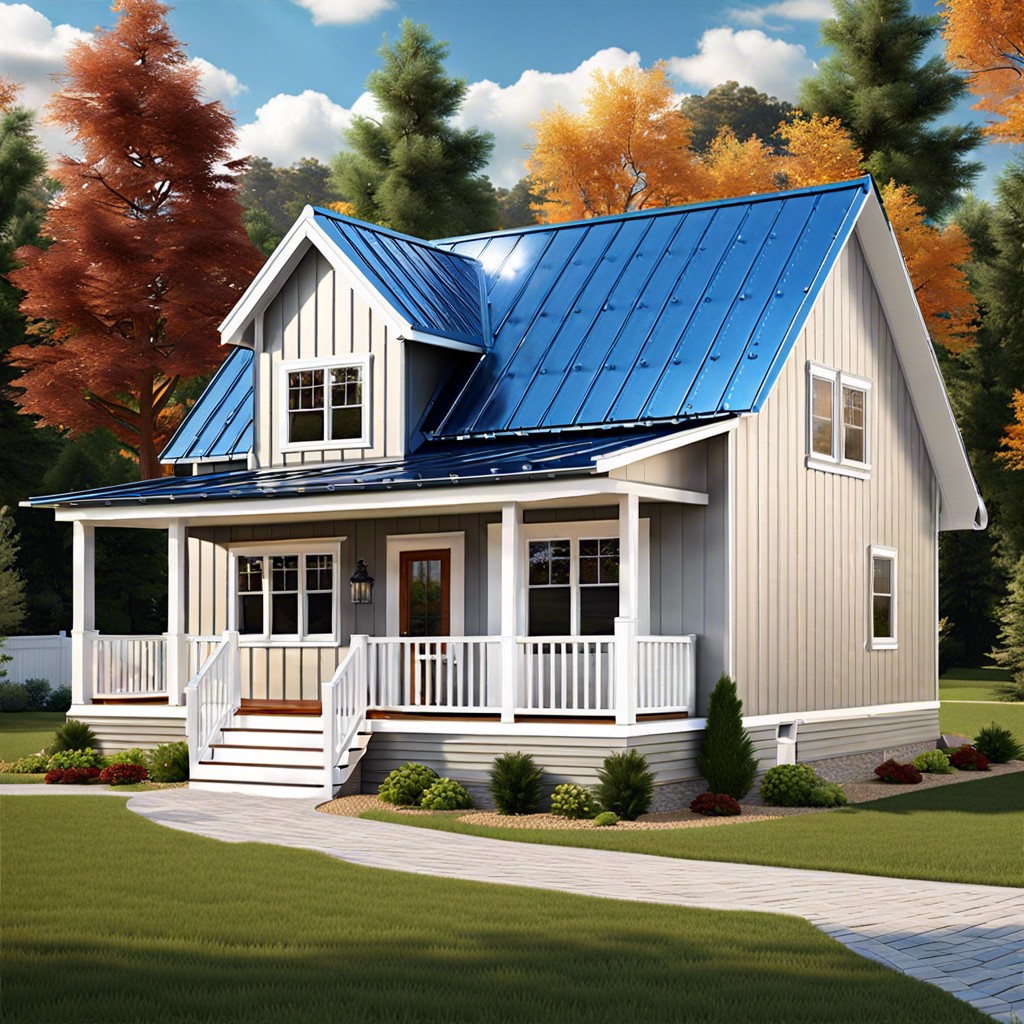
The average cost to install a metal roof on a 2,000-square-foot house ranges from $14,000 to $28,000. This price variation is due to fluctuations in material costs and regional labor rates. For example, aluminum or steel shingles may cost between $7 and $10 per square foot, while copper or zinc may reach up to $14 per square foot. It’s also important to consider that while the upfront cost may be higher than traditional roofing materials such as asphalt, the longevity and durability of metal can offer long-term savings through reduced maintenance and replacement costs. Remember to include underlayment, fasteners, and trim pieces in your budget, as these are necessary for a complete installation.
Metal Roofing Costs By Type
Metal roofing materials come in a variety of types, each with its own pricing structure. Corrugated steel panels are generally the most affordable, ranging from $1.50 to $2.50 per square foot. These are followed by metal shingles, which can average between $3 to $7 per square foot. Aluminum and steel are on the more cost-effective side, making them popular for residential roofing.
For those looking for more premium options, standing seam metal roofs are a sought-after choice due to their durability and sleek appearance. These typically cost between $4 to $12 per square foot. Copper and zinc roofing are at the higher end of the spectrum, often costing upwards of $14 per square foot due to their longevity and distinctive finishes.
The finish and coatings on metal roofing can also affect cost. For example, a galvanized coating is common and economical, while a stone-coated steel surface, which offers enhanced aesthetics and performance, can increase costs.
Selecting a metal roofing type is not just about the price per square foot; it’s essential to consider the longevity, aesthetic appeal, and the potential energy savings over time. High-end metal roofs can last up to 50 years or more, often justifying the initial investment with long-term benefits.
Cost Factors For Metal Roofing
Several elements impact the overall cost of a metal roof, which are important to consider:
Material type is a significant cost determinant, with options like aluminum, steel, or copper varying greatly in price. The choice of metal will largely influence the budget due to differences in durability, weight, and aesthetic appeal.
Roof size matters; prices are typically calculated per square foot. A larger area translates directly into higher material and labor costs. A 2,000-square-foot roof will require more material and time to cover than a smaller roof.
Complexity of installation can affect the price. Factors such as the roof pitch, the presence of skylights, chimneys, or multiple levels can make installation more challenging and time-consuming, increasing labor costs.
Geographic location also plays a role. Labor and material costs vary regionally; areas with higher costs of living will likely see more expensive roofing projects.
Coating and finishes can add to the cost. Specialized coatings, such as those for increased energy efficiency or particular colors and textures, can raise the price above that of the basic material.
Finally, removal of the old roof can be necessary and incur additional expense. If the existing roofing materials need to be stripped before the metal roof can be installed, this will add to the labor and disposal costs.
Metal Roof Installation Cost
The cost of installing a metal roof on a 2,000-square-foot house varies depending on labor rates, location, and the complexity of the roof structure. Professional installation typically accounts for a significant portion of the overall roofing cost.
Labor costs range from $3 to $7 per square foot, and this can be influenced by the roofing contractor’s experience, the time of year, and the roof’s pitch and shape. For example, steep or complex roofs require more time and safety equipment, increasing labor charges.
Removal of the existing roof, if necessary, can add an additional $1 to $2 per square foot to the project’s total cost. Keep in mind that some localities require a building permit for roof installation, which can also impact the total cost.
Choosing a qualified contractor ensures proper installation, which is crucial for metal roofs to perform their best and last as long as expected, generally over 50 years. Although the upfront cost is significant, consider it an investment in a durable, energy-efficient roof with minimal maintenance requirements.
Benefits of Metal Roofing
Longevity is a hallmark of metal roofs, often lasting 40-70 years depending on the material, compared to the 12-20 year lifespan of traditional asphalt shingles. Additionally, metal roofs provide enhanced durability, withstanding high winds, deterring pests, and being fire-resistant, which can lower insurance premiums.
Energy efficiency also plays a pivotal role, as metal roofs reflect solar radiant heat, which can reduce cooling costs by 10-25%. Eco-conscious homeowners appreciate that metal roofing materials are usually made from 25-95% recycled content and are 100% recyclable at the end of their life.
Their low maintenance requirements are a significant draw, with metal roofs necessitating only periodic inspections and cleaning to clear accumulated debris. Although installation is initially more costly than traditional materials, the long-term savings in maintenance and energy bills make metal roofing an investment that pays dividends over time.

